Participant registration and ice breakers
Congress programme
Download the congress programme
September 5th
September 6th, 7th 8th and 9th
Conference days: scientific sessions, symposia, round tables
September 7th
CISO members meeting
September 8th
Field visits
Accomodation in Varese
Discounted rates for attendants to CIO 2023 offered by hotels ìn Varese, with the support of Varese Convention & Visitors Bureau
Symposia
Here below the list of symposia, including the organisers. Round tables will be published soon!
The contribution of acustics in ornithological studies
(Rosario Balestrieri,
Almo Farina,
Gianni Pavan,
Ignazio Parisi)
Wetlands and waterbirds conservation facing global change
(Michelangelo Morganti,
Elisa Cardarelli)
Remote sensing and ornithology: state-of-the-art and outlook
(Giacomo Assandri)
Mountain birds and environmental changes: to adapt or die out?
(Matteo Anderle,
Riccardo Alba)
Internal and external factors regulating bird movement
(Letizia Campioni, Jacopo Cecere)
Invited speakers
4 high-profile guests from Switzerland, France and Germany will introduce each congress day. Find out who they are and their bio!
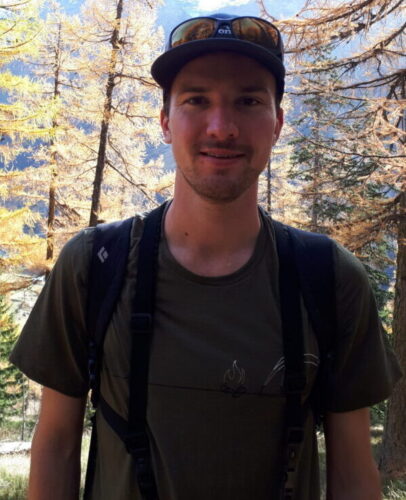
Arnaud Barras
Lecture: “The ecology of Alpine Ring Ouzels and its implications in changing mountain ecosystems“
Arnaud is a Swiss conservation biologist who has been observing and studying birds for more than half of his life. During his academic time at the university of Bern (MSc and PhD) he studied the ecology of mountain birds, focusing especially on the Ring Ouzel (Turdus torquatus) and looking at various aspects of its ecology, including habitat selection, breeding biology, migration patterns and population dynamics. Over the years, he focused his research on the ecological requirements of mountain birds and how changes in land use and climate might impact their populations and distribution. He is currently working for the Swiss Ornithological Institute in Sempach (LU), within the department of Bird Conservation, supporting landowners who wish to implement habitat restoration projects in favour of threatened bird species and biodiversity in general, mostly in farmland.
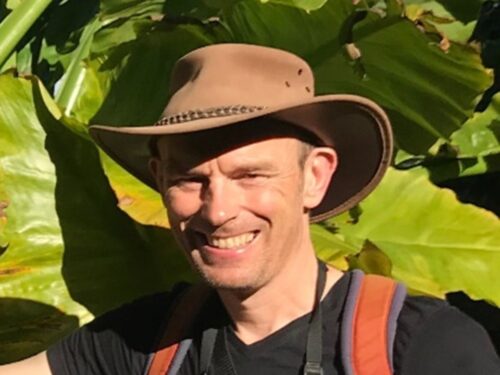
Dan Chamberlain
Lecture: “Current and future perspectives of urban bird research“
Dan is currently an Ordinary Professor in Ecology at the University of Turin, Italy. Following a DPhil on Blackbird ecology at the Edward Grey Institute, Oxford, Dan spent sixteen years working for the British Trust for Ornithology, most recently as the Principal Ecologist for Climate Change and head of Population Ecology and Modelling. He moved to Turin in 2010 to research communities of birds and beetles along elevation gradients in the Italian Alps. In a career of nearly 30 years, he has produced a large body of work on the ecology of birds in highly modified habitats, specifically farmland and urban areas. His current research has two main branches: assessing the impacts of environmental change on birds in alpine habitats; and, identifying drivers of urban animal communities, with a particular focus on the link between human socioeconomic status and biodiversity.
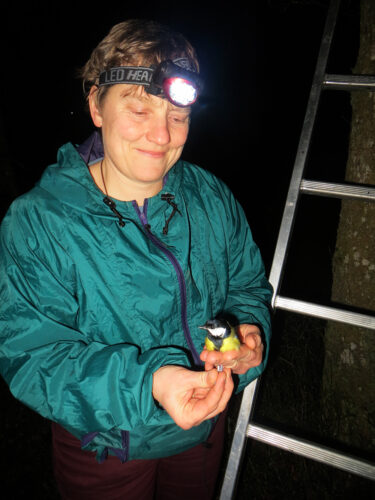
Barbara Helm
Lecture: “Migration programs facing rapid environmental change“
Barbara is Head of the Bird Migration Unit at the Swiss Ornithological Institute, in Sempach (Switzerland) and Visiting Professor IBAHCM at the University of Glasgow, UK. A birdwatcher from childhood, she was active in bird ringing and conservation from early on. She soon became fascinated by the ability of migratory birds to return to the breeding grounds in time. From then on, next to family, she dedicated her energy to the scientific study of ornithology and biological rhythms. Migration, which is all about being at the right place at the right time, has been at the centre of this research. She has held positions at the universities of Konstanz (D), Glasgow (UK) and Groningen (NL) before moving to the Swiss Ornithological Institute in 2022, where now she leads the migration unit. She continues to be fascinated by fundamental questions but she also worries about birds’ ability to continue their magnificent journeys while we humans quickly change global environments. Hence, in her current position in Switzerland, she also studies effects of climate change, light pollution, and ecology at African stopover and wintering sites of avian migrants.
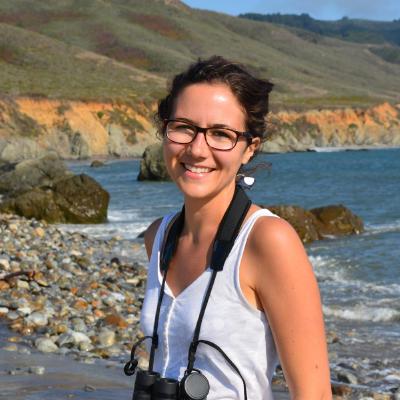
Karine Princé
Karine is a French conservation scientist and quantitative ecologist broadly interested in applied biodiversity conservation. Her research focuses on studying the ecological responses of biodiversity to global changes and local anthropogenic disturbances, as well as to the implementation of conservation measures. Most of her work relies on data from Citizen Science programs, which provide extensive data sets that allow conducting ecological research at multiple spatio-temporal scales. Her research aims at providing tools for policy decision support and conservation management. Since 2019, she provides her expertise to the European Commission (EC-JRC) on different topics from the modelling of biodiversity indicators in scenario assessment exercises as part of CAP policy process, to the development of urban biodiversity profiles in European cities using citizen science data.
5 Sept - Concert of O. Messiaen's music
On September 5th at 6:15 PM, the inaugural event of CIO 2023 will conclude at the Cinema Teatro Nuovo in Varese (Viale dei Mille 39) with the music of Olivier Messiaen and his "Catalogue d'Oiseaux" (Catalog of Birds) performed on the piano by Maestro Ciro Longobardi. This will be the first live performance of the French composer's repertoire in Northern Italy, showcasing his artistic expression of his passion for ornithology.
The event is free and open to conference attendees and the public (subject to availability, maximum 450 seats).
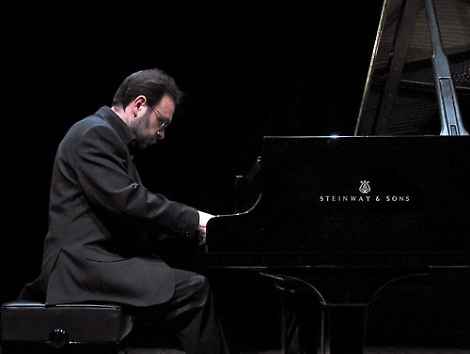
Ciro Longobardi, a pianist, has dedicated himself to the study and
dissemination of modern and contemporary musical languages for thirty
years. Between 2020 and 2022, he was engaged in the first complete
Italian piano performance of the great French composer Olivier Messiaen‘s works, realized for the Aperto Festival in Reggio Emilia. At
the same time, he is completing the recording of the same project for
the Dutch label Piano Classics. Longobardi offers an analytical
interpretation of Messiaen’s ornithological-inspired compositions,
highlighting the processes through which the observation and
contemplation of nature transform into musical thought. Longobardi won
the 2019 Abbiati Award for Best Recording from the National Association
of Music Critics for his performance of O. Messiaen’s Catalogue
d’Oiseaux.
5 Sept - Open-air cinema "Yaya e Lennie"
At 9:00 PM on September 5th, for all conference attendees, there will be an unmissable opportunity to enjoy one of the best Italian animated films with a naturalistic theme, set in the enchanting surroundings of the Estensi Gardens in Varese. It will be an evening of open-air cinema. The film was selected at the Locarno Film Festival in 2021.
Free admission for CIO 2023 participants!

Yaya e Lennie - The Walking Liberty di Alessandro Rak, Italia 2021, 110'
The film is set in the near future, where nature has reclaimed our
world, and the entire globe is covered by dense jungle. From what was
once the old world, a new society is trying to emerge, known as “The
Institution,” a kind of congregation that seeks to restore the concept
of order to the previous situation through its followers. The
Institution also attempts to exert control over the free people who
inhabit the jungle, aiming to “civilize” them. However, the jungle
inhabitants refuse to bow down without a fight and decide to rebel. In
this world, which oscillates between revolution and imposition, live
Yaya, a young woman with a rebellious spirit, and Lennie, a very tall
boy with a mental delay. The two are deeply connected and take care of
each other as they try to remain free, just as nature is in the
jungle…
6 Sept - "Fledgelings" event
Sei uno studente universitario, dottorando o giovane ornitologo? Vuoi conoscere altri giovani ornitologi e parlare di futuro insieme a esperti di vari settori? Allora non puoi mancare all’evento giovani, mercoledì 6 settembre alle ore 19:00
Are you a university student, PhD candidate, or young ornithologist? Do
you want to meet other young ornithologists and discuss the future with
experts from various fields? Then you can't miss the youth event on
Wednesday, September 6th, at 7:00 PM.

“Apericena” reserved for “young ornithologists” at the TuMiTurbi bar in Varese (Via C. de Cristoforis, 5). The evening, however, will start with speeches from 4 established young ornithologists, sharing their professional experiences, ranging from monitoring to outreach and communication, from the academic and research world to that of freelance ornithologists.
Following the presentations, there will be a buffet dinner, including 2 drinks per person at the bar.
After dinner, there will be an ornithology-themed quiz, and the winners will receive a surprise prize!
The participation fee for the event is €10.00.
Please note: The event is exclusively for university students, PhD candidates, or anyone who has graduated within the last 5 years.
7 Sept - "Birds in the history of cinema"
On Thursday, September 7th, at 9:00 PM, there will be an evening dedicated to cinema and ornithology at the Cinema Teatro Nuovo in Varese (Viale dei Mille 39), thanks to the patient and passionate work of two exceptional guests, Andrea Bellavita and Mauro Gervasini. It will be the world premiere of an event specially organized for CIO 2023, an experience not to be missed!
Admission is free and reserved exclusively for CIO congress attendees.

In 1963, Alfred Hitchcock invented a new way of representing ornithological fauna in cinema, which had previously been limited to the loving and colorful chirping in Disney films and a few circling vultures in classic Hollywood westerns. It was with “The Birds,” and from that moment, the iconography changed radically, as birds began to evoke fear: naturally, the crows, but not just them. Once the first emotion was unleashed, gradually, cinema found a place for all the others: comedy and anguish, tenderness and loneliness, hope and revenge.
The editing, curated by Andrea Bellavita (Associate Professor at the University of Insubria) and Mauro Gervasini (journalist, film critic, and consultant for the Venice International Film Festival selection committee), will present a transversal journey through the history and genres of cinema, tracing lines of continuity while also highlighting differences and contradictions. Following the directors’ obsessions and the tropes of imagination, among pigeons and canaries, white doves and penguins, sinister birds and small birds. With a promise: you will never look at a feathered creature in the same way again…
8 Sept - Field visits
On Friday, September 8th, in the afternoon, from 2:20 PM to 6:00 PM, there will be naturalistic excursions.
The registration fee includes a guide and transportation by bus from the Congress venue to the excursion site and back.
Destinations (Choose 1):
- Palude Brabbia Nature Reserve
- Campo dei Fiori Regional Park
Participation cost: €18 (maximum 50 participants)
(For young participants only)
- Pineta di Appiano Gentile e Tradate Park
Participation cost: €6 (maximum 40 participants, the event is exclusively for university students, PhD candidates, or anyone who has graduated within the last 5 years)
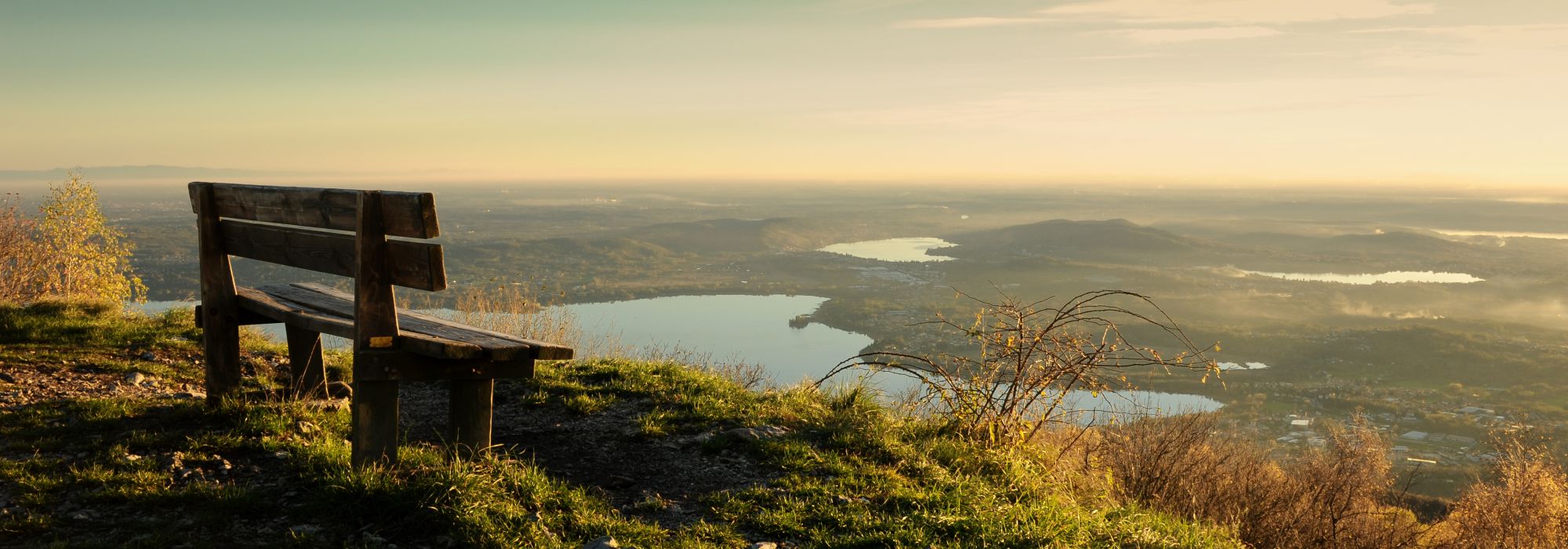
Parco Regionale Campo dei Fiori
The Parco Regionale del Campo dei Fiori overlooks the city of Varese, serving as a true green lung for the community. It features a karst environment with many caves and is home to several bat colonies and the wallcreeper during the winter. The Sacred Mount, with its historic chapels, dominates the landscape, surrounded by beech forests and oak woods that house various woodland species, such as tits, nuthatches, and many woodpeckers, including the black woodpecker.
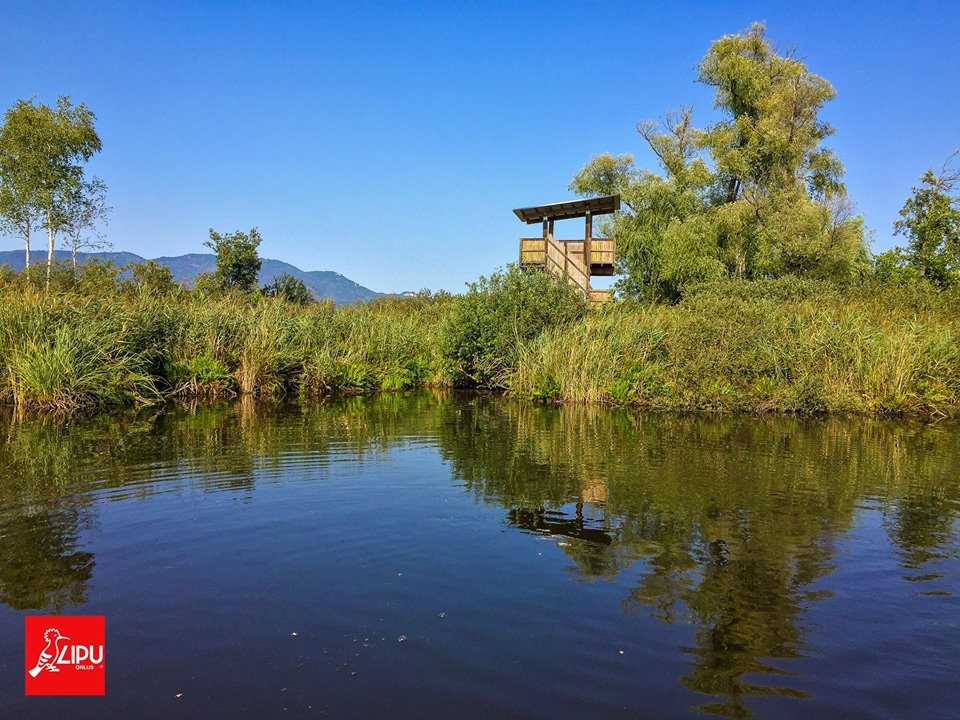
Riserva Naturale Palude Brabbia
Palude Brabbia represents the most important Nature Reserve in the province of Varese. This historical peat bog has been exploited for several centuries, and it serves as an extension of Lake Varese, alternating with extensive reed beds, wet woodlands, and open water areas known as “chiari.” It is of great importance for nesting birdlife, hosting a large heronry, various species of waterfowl, and several warblers. Additionally, it serves as an important stopover site for many migratory species.
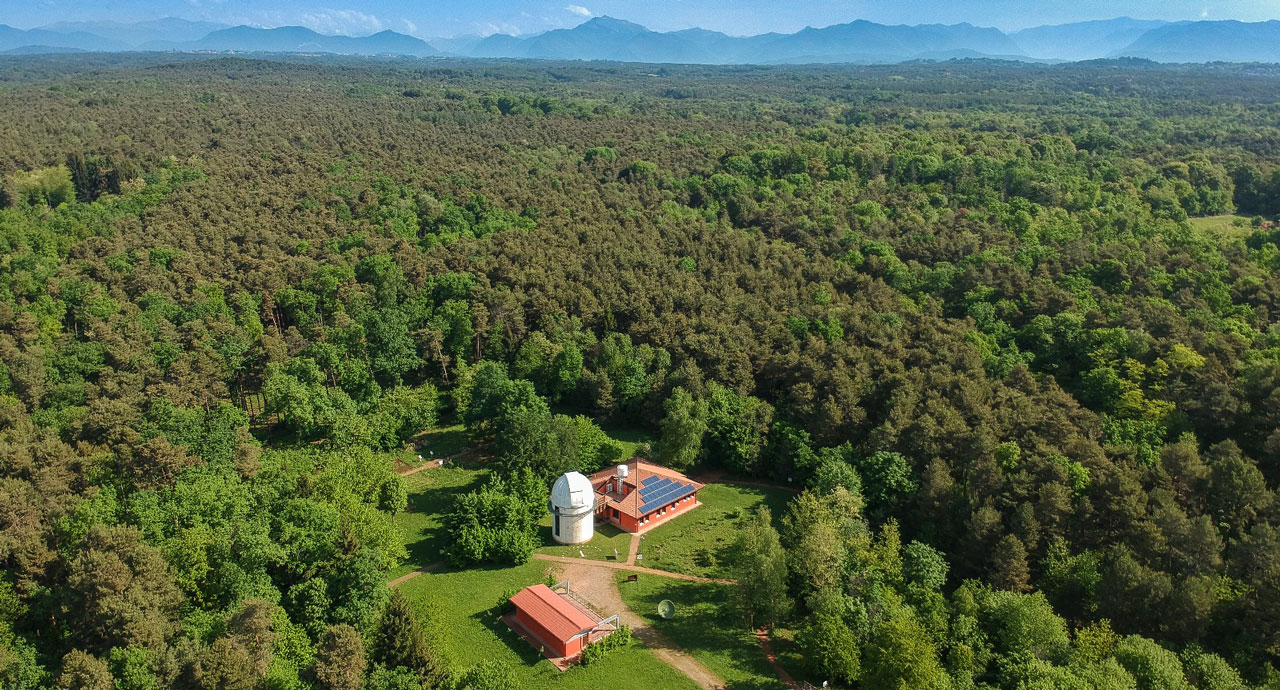
Parco della Pineta di Appiano Gentile e Tradate
The 4,860 hectares of Parco Pineta, located in the terraces of the glacial rivers in the high Lombardian plain, encompass the largest and continuous subalpine Scots pine forest in Lombardy. The park includes acidophilic woods and patches of heathland. These environments are ideal for finding some nesting species even at lower altitudes, such as the black woodpecker, crested tit, European stonechat, goldcrest, and hobby falcon.
Please note that the event is exclusively reserved for university students, PhD candidates, or anyone who has graduated within the last 5 years.
8 Sept - Social dinner
The social dinner will take place on the evening of Friday, September 8,
2023, at the De Filippi Institute in Varese, Via L. Brambilla, 15.
(exact time to be confirmed).

Immersed in the greenery of Varese’s parks and gardens, the Istituto De Filippi is a hospitality school offering advanced training courses.
During the event, there will be a Milvus Brewery stand, a Lucanian brewery born from a passion for craft beer combined with a love for ornithology.
The participation cost for the social dinner is €30.00.
The dinner will consist of 4 courses, including water and wine.

